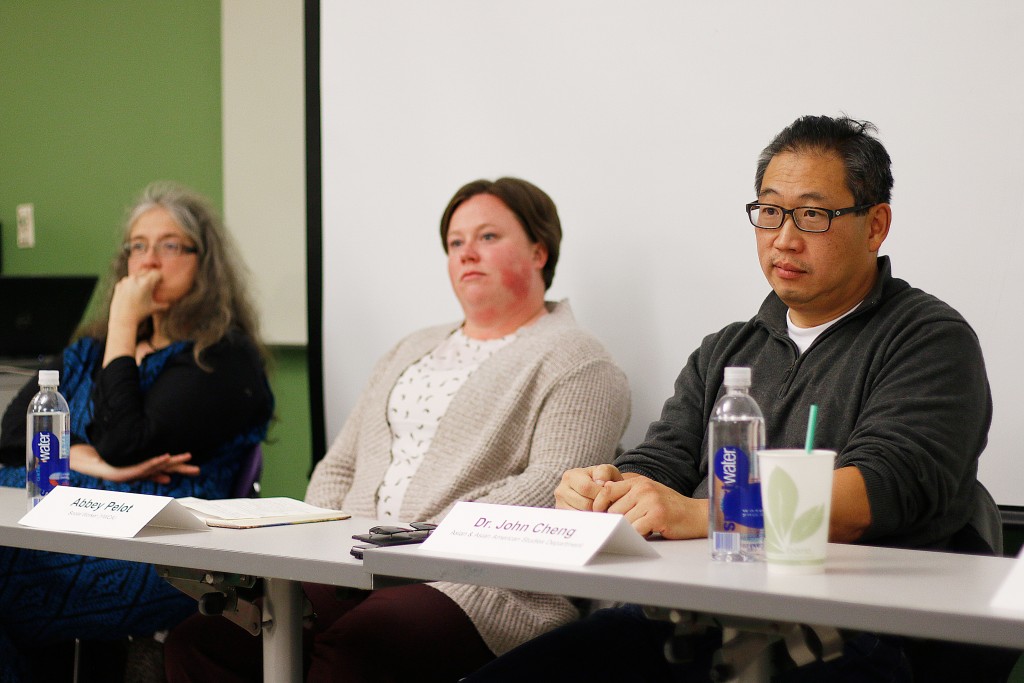
Men can play a larger role than that of quiet bystander in the fight for gender equality, and Binghamton University students and faculty are trying to get them to realize inequality can hurt men just as much as women.
“Capturing Passion — Masculinity & the Cycle of Violence: Engaging Men as Allies” was held on Monday evening in the Old University Union and was the first event of a two-part speaker series. Melina Martin, the faculty student scholar for the Center for Civic Engagement and a senior double-majoring in biology and English, organized the event to incite a discussion on the effects of the unequal standards of masculinity that society has relayed unto young boys and men.
“We wanted to open up a discourse about the issue of gender equality,” Martin said. “Too many times it’s presented as a women’s issue and men are told they’re either not allowed to participate or they don’t have any input and that’s really counterproductive to the goal. The whole point is to have equality between the two genders and if you can’t involve a whole half of that equation, you’re not going to get anywhere.”
The organizers presented two videos on the perceptions of masculinity and the damage that definition can have on all members of society. It was followed by a panel discussion led by Ann Merriwether, a psychology professor at BU. The panel consisted of John Cheng, an assistant professor of Asian and Asian-American studies at BU; Stephen Gleason, a graduate student studying public administration; and Abbey Pelot, a social worker in Binghamton.
Merriwether began the discussion by asking whether the panel believed the phrase “be a man” was damaging to men. Cheng said that he believes telling boys to “be a man” makes them believe they have the right to take the power in a relationship and act violently.
“One thing that I noticed in men’s responses to what it means to ‘be a man’ was that they are taught to believe that to be a man they have to be strong and take power,” Cheng said. “Men are taught to think of themselves as sexual beings and they are taught that women are sexual items. This contributes to some people’s viewing of their own masculinity as entitlement.”
Merriwether said that this view of masculinity and strict definitions of gender roles for both men and women led to high amounts of sexual violence.
“You have women who are objectified and men who are supposed to be players, and then you add alcohol to the mix,” Merriwether. “I think you have something very dangerous. “I think that we need to look at gender roles, and our gender roles for men are incredibly rigid.”
The panelists said that they believed a reason that negative effects on men are often ignored in the discussion of gender equality is because men feel like they don’t belong in the discussion.
“The mentality persists that men think that gender discussions are exclusive to women,” Gleason said. “They’ve decided that feminism is specific to being female and that is problematic. Some men feel that they have no part in the issue and that enforces a lack of conversation.”
Attendee Julian Madera, an undeclared sophomore, said he believes that the education of men is instrumental in creating gender equality.
“Men obviously have privilege in society and I feel that when people have privilege they should use it to help people that are disadvantaged,” Madera said.
The second event on Thursday evening will focus on showing students what actions they can take to promote gender equality.


